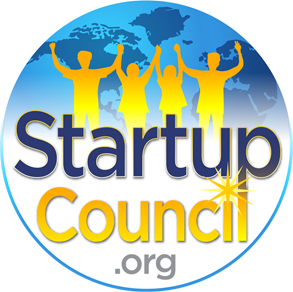How do you Define Web 3.0?
How do you explain #Web3?
It's still early days for #Blockchain so we're trying to explore and explain this next wave of #innovation to help #entrepreneurs identify opportunities.
Here's what I came up with speaking on a panel last night to define #Web3 for a StartupCouncil.org audience.
What do you think? How do you explain Web 1, 2, and 3?
Web 1.0: The first generation of networked technologies was largely about connecting everyone to share information for the first time in history in real time. The business expression of the #dotcom era was largely #publishing. (That's why we called it #newmedia for many years.)
A worldwide #network with zero marginal costs allowed information to flow more freely than ever before. And basic e-commerce offered online ordering for the first time.
Web 2.0: Building on 1.0, the sharing became more two way as bandwidth increased. Blogs and social media arrived during #Web20 to allow less techie civilian consumers to participate, connect, and build audiences.
#Ecommerce and digital advertising exploded to become the standard, and #mobile put a global #infostream and shopping cart in everyone's pockets.
Web 3.0 (Here's my definition that I'd love your feedback on):
This 3rd wave of #internet development offers many, many opportunities as #blockchain and #defi and #crypto all expand toward mainstream adoption.
What interests me the most is that #Web30 offers #OWNERSHIP.
The worldwide capabilities of #distributedledgers, #smartcontracts, #bigdata, immutablerecords, #microtransactions, and #tokenization potentially allow #everyone to #OWN things that were just too expensive or complicated to track previously.
The massively distributed architecture and global reach of #Web3 can #fractionalize #assets, enable low cost #trading and create #tokens for everything.
If/when that works, Web 3.0 can create new #financial and #politics #infrastructure via #disintermediation of existing #gatekeepers and institutions, including development of new #incentive structures and #microeconomies to support previously marginalized #communities (aka markets that were seen as too small, unimportant, or too expensive to serve).
Being able to track, report, share information about, and compensate participants on a massive global scale but for micro, micro events is a huge opportunity for #entrepreneurs,
#socialimpact, and #changemakers, as well as #tradfi #politics, and #leaders worldwide because it could #unlock #demand for huge new #asset classes of #information, #services, and #products.
These thoughts are thanks to a panel sponsored by the Blockchain Foundation and Hedera (creators of the #HBAR #cryptocurrency) where I was speaking about #Blockchain. There are so many opportunities for #entrepreneurs but the way is not clear (as usual).
What do you think of this paradigm?
Do my 3 waves make sense?
Please share your feedback and join the conversation on the LinkedIn version of this post here.
We’d love to hear your suggestions and what excites you most about Web 3.0.


